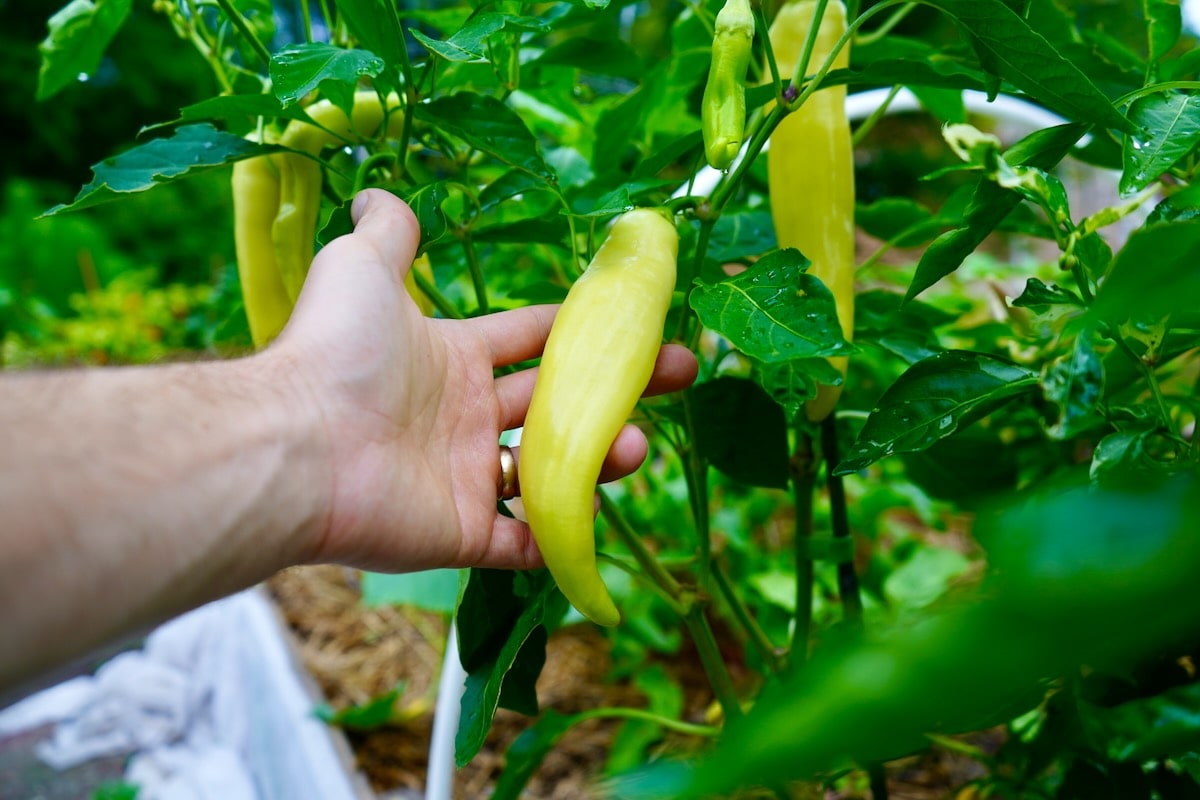Choosing the Best Fertilizers for Peppers: Professional Recommendations
Wiki Article
Just How Fertilizers Play an Important Role in Growing Bountiful and healthy Pepper Crops
Plant foods offer as the foundation of successful pepper farming, providing a critical method to nourishing the soil and fostering optimal plant growth. The elaborate dance between important nutrients and the pepper plants' physical procedures emphasizes the essential role that plant foods play in making sure a bountiful harvest.Relevance of Nutrient-Rich Plant Foods
The utilization of nutrient-rich plant foods plays a crucial function in boosting the efficiency and quality of pepper plants in modern farming practices. Pepper plants need a balanced mix of necessary nutrients to flourish and produce high yields of quality fruits. Phosphorus, nitrogen, and potassium are main nutrients that are essential for the growth and growth of pepper plants. Nitrogen help in leafy environment-friendly development and general plant vitality, phosphorus supports origin growth and blossom manufacturing, while potassium adds to condition resistance and fruit high quality.Insufficient degrees of these nutrients can lead to stunted growth, decreased returns, and vulnerability to conditions (best fertilizers for peppers). Nutrient-rich plant foods offer a targeted option to make certain that pepper plants receive the required aspects for ideal development and performance. In addition, these fertilizers help enhance dirt fertility with time, producing a lasting setting for long-term pepper growing
Enhancing Plant Development and Growth
To maximize plant growth and growth in pepper crops, strategic application of nutrient-rich plant foods is necessary. Fertilizers play a crucial function in boosting the general wellness and efficiency of pepper plants by providing them with necessary nutrients that may be lacking in the soil.In addition to these macronutrients, trace elements such as zinc, iron, and magnesium are also essential for the appropriate performance of different plant processes. Iron, as an example, is required for chlorophyll manufacturing, which is vital for photosynthesis and total plant growth. Zinc plays a crucial duty in enzyme activity and hormone synthesis, influencing plant growth and development at a mobile level. Magnesium is necessary for the development of chlorophyll and overall energy transfer within the plant.

Boosting Illness Resistance With Plant Foods
By tactically including targeted fertilizers, farmers can strengthen the disease resistance of pepper plants, guaranteeing optimum plant health and wellness and performance. Fertilizers having vital nutrients like phosphorus, nitrogen, and potassium play a crucial function in reinforcing pepper plants' immune systems, making them a lot more resistant to various diseases. Nitrogen, as an example, aids in the production of healthy proteins that are vital for plant defense systems. Phosphorus adds to root development, making it possible for plants to better soak up nutrients and water, hence boosting their capacity to fend off diseases. Potassium regulates processes that improve general plant wellness, making peppers extra durable versus virus.
Making Best Use Of Pepper Return Via Fertilizing
Using a balanced fertilization technique is crucial to accomplishing maximum pepper return and ensuring optimal plant efficiency. By offering peppers with the right nutrients at the correct time, farmers can significantly boost their return potential. Potassium, phosphorus, and nitrogen are crucial aspects for pepper development, with nitrogen assisting in leaf and stem development, phosphorus sustaining root growth and blossom development, and potassium promoting total plant health.To make the most of pepper return, it is crucial to carry out dirt tests to figure out existing nutrient levels and determine any kind of deficiencies that require to be addressed. Based upon these outcomes, farmers can develop a customized fertilizing plan that satisfies the certain needs of their pepper crops. Furthermore, correct fertilization methods such as split applications throughout the expanding period can guarantee constant nutrient accessibility for the plants.

Sustainable Fertilizer Practices for Peppers
In taking into consideration sustainable plant food techniques for peppers, it is critical to concentrate on lasting dirt health and environmental stewardship together with making best use of plant efficiency. Lasting plant food practices aim to enhance or keep dirt fertility while lessening negative environmental effects. One essential technique is using natural fertilizers such as compost, manure, or cover crops, which not only offer vital nutrients to the peppers however discover this also add to soil structure and microbial activity. These natural choices aid build organic issue in the soil, enhancing its capacity to keep water and nutrients, thus sustaining long-lasting crop health and durability.Furthermore, precision farming methods, such as soil screening and targeted nutrient applications, can help enhance plant food usage, making sure that peppers get the nutrients they require without excess drainage into waterways. This not just profits the environment by decreasing pollution yet additionally saves costs for farmers by minimizing waste. By embracing sustainable plant food practices, pepper cultivators can secure the health of their plants, soil, and bordering ecological communities for future generations.
Conclusion
Finally, fertilizers are essential for growing healthy and balanced and plentiful right here pepper plants. best fertilizers for peppers. They provide required nutrients for plant development and growth, boost illness resistance, and optimize yield. By executing lasting plant food methods, farmers can make certain the long-term health and wellness of their pepper crops and add to a more reliable and environmentally-friendly agricultural systemThe detailed dance between vital nutrients and the pepper plants' physical procedures highlights the pivotal role that plant foods play in making certain a bountiful harvest.To maximize plant growth and growth in pepper crops, calculated application of nutrient-rich plant foods is essential. Plant foods play a crucial duty in improving the overall health and wellness and efficiency of pepper plants by offering them with important nutrients that might be lacking in the soil.By purposefully incorporating targeted plant foods, farmers can reinforce the disease resistance of pepper helpful site plants, ensuring optimal plant wellness and efficiency. Plant foods containing important nutrients like potassium, phosphorus, and nitrogen play an important function in reinforcing pepper plants' immune systems, making them a lot more resilient to various diseases.
Report this wiki page